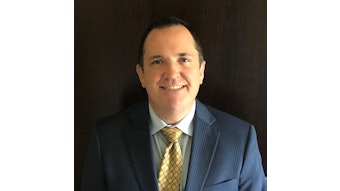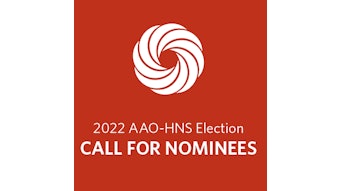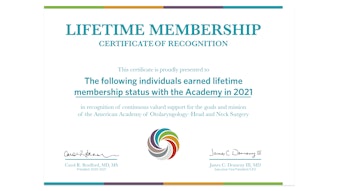Pearls From Your Peers: Use of Biologics in Our Patients with Chronic Rhinosinusitis with Nasal Polyposis
Zara M. Patel, MD, is joined by Joseph K. Han, MD, to discuss the nuances of prescribing the relatively new class of biologics for patients with chronic rhinosinusitis with nasal polyps (CRSwNP).

When would you choose to offer a biologic instead of surgery?
This depends on a lot of factors, and biologics and surgery are not our only options. There are other options available, such as steroid sinus implants, topical steroid rinses and sprays, oral steroids, etc. I truly believe deciding on a treatment option should be a shared decision-making process with the patient, to take their thoughts, preferences, and cost into consideration.
Do you have a preference for use of biologics before, or only after, surgery?
For the majority of CRSwNP patients who have never had surgery before they see me, surgery is my initial choice instead of a biologic. A recent publication1 demonstrates that most experts, including allergists, agree on this point.
Have you seen an ability to stop other well-known topical therapies (budesonide rinses/fluticasone sprays, etc.) once patients are on this?
Yes, in a minority of CRSwNP patients, they have been able to stop topical steroids. However, I am finding that a lot of patients are still remaining on topical steroids, even with a biologic.
When would you choose dupilumab versus aspirin (acetylsalicylic acid, or ASA) desensitization in our aspirin-exacerbated respiratory disorder (AERD) patients?
I rely on the shared decision-making process to make this choice with the patient. However, both work. Based on my experience, dupilumab seems to have a better and quicker response than ASA desensitization. Also, the adverse effects seem to be lower with dupilumab.
Do you prescribe it yourself or send the patient to an allergist for them to prescribe?
We prescribe it ourselves. Each physician should choose what they feel comfortable with prescribing.
Can you tell yet which particular patients will benefit vs. not?
Yes, I am starting to see a pattern; however, more needs to be done to study this question before we have a definitive answer. Phenotype-endotype seems to help determine which NP patients will have a good response to a particular one of the three biologics approved for CRSwNP: Dupixent, Xolair, and Nucala.
What are the insurance/other logistical issues to consider?
Prior authorization is becoming an issue in prescribing these biologics for CRSwNP patients. However, assistance with this can be found by reaching out to the respective companies.
Disclosure:
Dr. Han is a research consultant for Sanofi Genzyme, Regeneron, Astra Zeneca, Novartis, Genetech, and GlaxoSmithKline and is involved in the clinical studies for biologics in CRSwNP.
Reference:
Han JK, Bosso JV, Cho SH, Franzese C, Lam K, Lane AP, Lee SE, Palmer J, Peters A, Soler ZM, Lee JT. Multidisciplinary consensus on a stepwise treatment algorithm for management of chronic rhinosinusitis with nasal polyps. Int Forum Allergy Rhinol. Published online May 31, 2021. doi: 10.1002/alr.22851




















